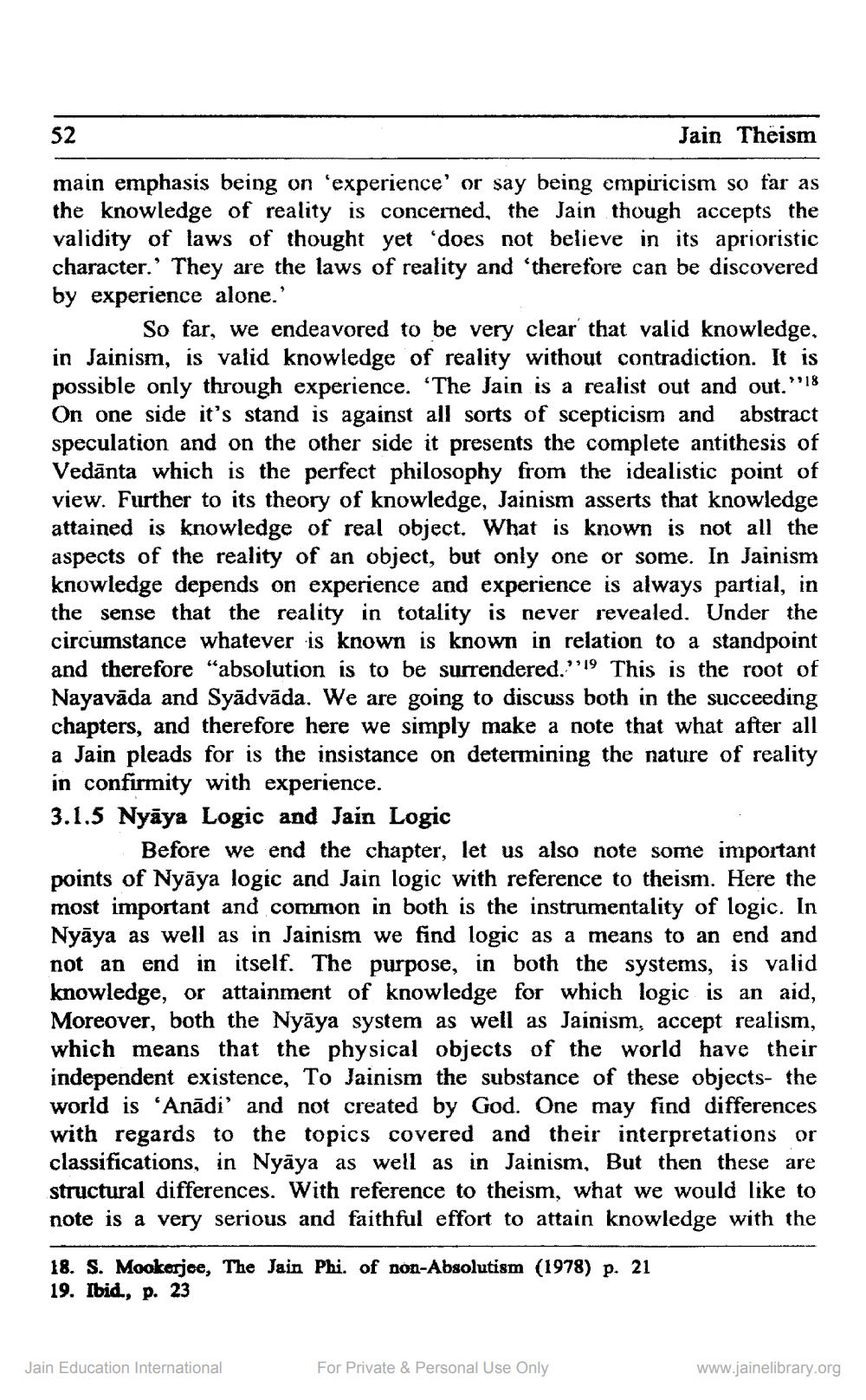________________
52
Jain Theism
main emphasis being on 'experience' or say being empiricism so far as the knowledge of reality is concerned, the Jain though accepts the validity of laws of thought yet does not believe in its aprioristic character.' They are the laws of reality and 'therefore can be discovered by experience alone.'
So far, we endeavored to be very clear that valid knowledge. in Jainism, is valid knowledge of reality without contradiction. It is possible only through experience. “The Jain is a realist out and out."]8 On one side it's stand is against all sorts of scepticism and abstract speculation and on the other side it presents the complete antithesis of Vedānta which is the perfect philosophy from the idealistic point of view. Further to its theory of knowledge, Jainism asserts that knowledge attained is knowledge of real object. What is known is not all the aspects of the reality of an object, but only one or some. In Jainism knowledge depends on experience and experience is always partial, in the sense that the reality in totality is never revealed. Under the circumstance whatever is known is known in relation to a standpoint and therefore “absolution is to be surrendered."19 This is the root of Nayavāda and Syādvāda. We are going to discuss both in the succeeding chapters, and therefore here we simply make a note that what after all a Jain pleads for is the insistance on determining the nature of reality in confirmity with experience. 3.1.5 Nyāya Logic and Jain Logic
Before we end the chapter, let us also note some important points of Nyāya logic and Jain logic with reference to theism. Here the most important and common in both is the instrumentality of logic. In Nyāya as well as in Jainism we find logic as a means to an end and not an end in itself. The purpose, in both the systems, is valid knowledge, or attainment of knowledge for which logic is an aid, Moreover, both the Nyāya system as well as Jainism, accept realism, which means that the physical objects of the world have their independent existence, To Jainism the substance of these objects- the world is ‘Anādi' and not created by God. One may find differences with regards to the topics covered and their interpretations or classifications, in Nyāya as well as in Jainism, But then these are structural differences. With reference to theism, what we would like to note is a very serious and faithful effort to attain knowledge with the
18. S. Mookerjee, The Jain Phi. of non-Absolutism (1978) p. 21 19. Ibid., p. 23
Jain Education International
For Private & Personal Use Only
www.jainelibrary.org




